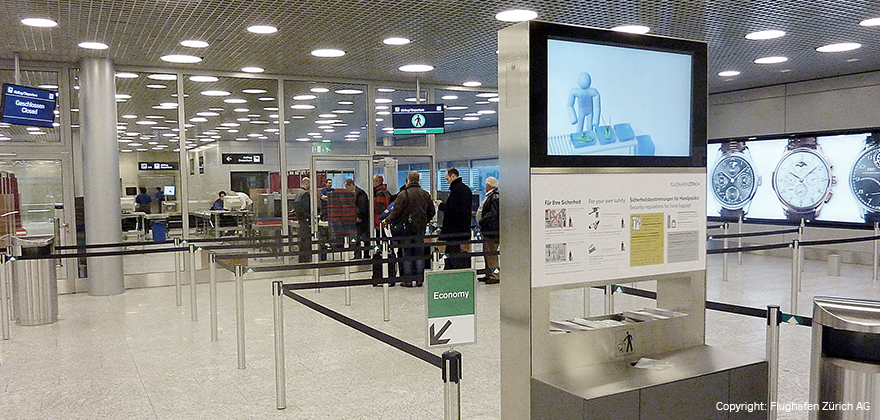- FAAN to Acquire Scanners to Boost Security
To boost security at airports nationwide, the Federal Airports Authority of Nigeria (FAAN) has ordered for modern scanners, its General Manager, Customer Services, Mrs Ebele Okoye, has said.
She disclosed this at the Second Quarter stakeholders’ forum held at the Murtala Muhammed International Airport, Lagos.
Okoye said the scanners could detect hard drugs, ammunition and food as well as harmful liquids.
She said: “Arrangements have been made to bring these scanners to Nigeria. They are different from what we have because they can detect anything inside a baggage without manual checks.
“Our goal is to reduce interface between passengers and officials of agencies at the airport to curb corrupt practices and also improve service delivery at our airports.”
According to her, the forum is one of the obligations of FAAN as outlined in the reviewed FAAN Service Charter and it is aimed at improving relationship between FAAN and the stakeholders.
FAAN Managing Director, Mr Saleh Dunoma, represented by FAAN’s Director of Operations, Capt. Rabiu Yadudu, said the cordial relationship between FAAN and the stakeholders must be sustained for efficient and effective service delivery.
“I enjoin us to join hands together to uplift our airports so that we can achieve our mission statement of being among the best airport groups in the world.
“This forum is to ensure that the cordial relationship that existed is strengthened to achieve excellence at all times.
“This is an important road map for us in the industry to ensure service improvement as feedback mechanism,” he said.
MMIA General Manager Mrs Victoria Shin-Aba, said FAAN was seeking ways to improve customer service, especially with the recent inauguration of a feedback application at the airport.
Mrs Shin-Aba noted that the app, an initiative of the Presidential Enabling Business Environment Council (PEBEC), would give passengers and the public the opportunity to register their complaints or commend the quality of services being rendered by government agencies at the airports.
“The application also gives assurance that such complaints will be attended to and resolved within 72hours, in line with the provisions of Executive Order 1 of the Federal Government of Nigeria,” she said.
Meanwhile, the N3 billion contractual agreements that stalled the installation of very important airfield lighting at 1/8 Left runway of the Murtala Muhammed Airport, Lagos, would be resolved, according to Dunoma.
The Lagos airport has two runways. The 1/8 Right runway is dedicated to international airline operations because of the length and width of the facility while the 1/8 Left runway is one used by domestic carriers.
Dunoma, represented by Director of Airport Operations, Capt. Rabiu Hamisu Yadudu, disclosed that the project was stalled eight years ago; a situation that embarrassed the government and made life difficult for domestic airlines.
He said the Federal Government has revisited the project, adding that the facility would be completed in the next few months.
He announced that the central taxi-way of the airport runway, which was closed 10 years ago, would be re-opened in three months.
Dunoma, who did not disclose the contractual agreement that led to the abandoning of the project eight years ago, said: “Small contractual issues delayed the project. This facility is very important for airlines and we are doing everything possible to make sure it is fixed to save airlines from wastage of fuel.”
The central taxi-way closure has led to difficulty for domestic airlines. A taxi-way is a ground path used by aircraft that connects a runway with another area of an airport.
Taxiways are usually made of concrete or asphalt, and much like runway surfaces, are pretty solid – anything from a foot to five feet in thickness.
The 18-Left runway had remained without light for over a decade, forcing domestic airlines to bring stop their operations by 7pm because of lack of light on the runway. They, however, taxi to a far distant 18-Right runway for landing and take-off.

 Billionaire Watch3 weeks ago
Billionaire Watch3 weeks ago
 Startups4 weeks ago
Startups4 weeks ago
 News4 weeks ago
News4 weeks ago
 News4 weeks ago
News4 weeks ago
 Bitcoin4 weeks ago
Bitcoin4 weeks ago
 Naira4 weeks ago
Naira4 weeks ago
 Forex3 weeks ago
Forex3 weeks ago
 Treasury Bills4 weeks ago
Treasury Bills4 weeks ago

























